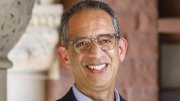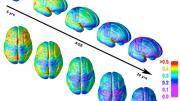John Goldberg Appointed Dean of Harvard Law
John C.P. Goldberg has been formally named the dean of Harvard Law School, after serving in an interim capacity since March 2024. A distinguished legal scholar with a focus on tort law and legal philosophy, Goldberg joined Harvard in 2008 after teaching at Vanderbilt Law School and clerking for Supreme Court Justice Byron White. At Harvard, he has chaired key committees on faculty hiring, policy, and governance, and previously served as deputy dean. His academic work, including widely used casebooks and editorships of leading journals, has shaped contemporary thinking about responsibility and redress in the law. President Alan M. Garber and Provost John Manning expressed confidence that Goldberg will guide the law school with wisdom and resolve amid nationwide challenges to legal institutions and constitutional principles alike (see harvardmag.com/law-school-new-dean-goldberg).
Winthrop House Name Narrowly Preserved
For the past year and a half, a Harvard committee has deliberated whether to change the name of Winthrop House, responding to a March 2023 student-initiated denaming request. The students argued that both John Winthrops—the seventeenth-century governor and the eighteenth-century professor—“were instrumental in creating, maintaining, and defending slavery.” Officially the “John Winthrop House” (named for the professor, not the governor), it will now be referred to simply as “Winthrop House,” already the de facto colloquial usage. The decision retains the Winthrop name to honor the 400-year legacy of the Winthrop family while deemphasizing the complicated history of the two John Winthrops. Changing the name of the House outright, the committee argued, would deprive Harvard students of “the chance to reckon with the institution’s history” (see harvardmag.com/winthrop-house-name-25).
HKS Launches a Major Fellowship for Public Servants
The Harvard Kennedy School (HKS) has announced the American Service Fellowship, a fully-funded one-year master’s degree program for at least 50 students—comprising equal numbers of military veterans and experienced public servants. Launching in 2026, this pilot program will represent the largest single-year scholarship offering in HKS history.
The initiative arrives as the school grapples with major institutional challenges: layoffs, pressure from reduced international enrollment, and a University-wide hiring freeze. Funded entirely by philanthropy, it will not require additional staff or facilities, instead leveraging existing infrastructure.
Dean Jeremy Weinstein stressed the need for leadership that bridges divides in a time of political polarization. The fellowship is intended not just as financial aid, but as an investment in civic renewal. HKS will recruit candidates from all 50 states, requiring each to have at least seven years of service in public or military roles (see harvardmag.com/kennedy-school-fellowship).
Harvard Faculty Testify in Free Speech, Deportation Case
At the heart of a closely watched federal court case is a question with sweeping implications: can noncitizens in the United States be deported for their political views? Harvard philosophy professor Bernhard Nickel testified that he has self-censored in response to a wave of arrests and threatened deportations targeting pro-Palestinian voices.
The lawsuit—brought by academic groups including the Harvard chapter of the American Association of University Professors, of which some University faculty are members—alleges that the Trump administration has effectively instituted a policy of “ideological deportation,” arresting and detaining students and faculty who are not U.S. citizens and who speak out against Israel’s actions in Gaza. While the government denies the existence of such a policy, the plaintiffs argue that the pattern of arrests, combined with intelligence gathering by a federal “tiger team,” amounts to a de facto violation of First Amendment rights.
Nickel, a green card holder from Germany and longtime U.S. resident, testified that he stopped speaking out after the arrest of a student activist from Tufts University. He even canceled travel to visit a terminally ill family member abroad, fearing he might be denied reentry. “I love this country,” he told the court, “but I no longer feel safe expressing my views.”
The case, still unresolved, reflects growing tensions over academic freedom, free speech, and immigration enforcement. The outcome may set important precedents for how political expression is protected—or punished—among noncitizen scholars and students (see harvardmag.com/aaup-v-rubio-immigration).
Layoffs Spread Across Harvard Amid Financial Strain
Amid federal funding freezes, a dramatic endowment tax increase, and visa-related international enrollment uncertainty, Harvard has implemented layoffs across numerous schools and centers. The T.H. Chan School of Public Health, which depends heavily on federal research grants and international tuition, has already begun reductions. The Harvard Kennedy School, where more than half of the students are international, has also laid off staff and prepared contingency plans for displaced learners.
At Harvard Medical School, budget cuts of 15 percent have been ordered, with potential program and personnel impacts looming. The School of Dental Medicine faces an annual shortfall of $9 million in federal grants. The Wyss Institute for Biologically Inspired Engineering reports unpaid invoices and halted grants, while the Broad Institute, a joint Harvard and MIT biomedical research institute, laid off 75 employees in late June.
Even schools less reliant on federal funding, such as the Harvard Divinity School, may feel pressure due to a recent increase in taxation on college endowments. The graduate schools of education, engineering, and design—all with large numbers of international students—face uncertain risks as the University’s global orientation, once considered a strength, has made it vulnerable to political headwinds (see harvardmag.com/layoffs-across-university).
Contingency Plans for International Students Unveiled
With the legal status of international student visas unresolved, Harvard is developing fallback strategies. The Harvard Kennedy School (HKS) announced two possible options: a new online program and a collaboration with the University of Toronto’s Munk School of Global Affairs and Public Policy that would allow second-year students to complete their degrees in Canada. HKS Dean Jeremy Weinstein emphasized that these options will only be implemented if necessary. The T.H. Chan School of Public Health, where 42 percent of students are international, is also expanding online degree programs and nondegree training modules aimed at global health professionals. The plans are designed to meet the needs of students unable to re-enter the U.S. due to visa restrictions (see harvardmag.com/international-students-contingency-plans).









